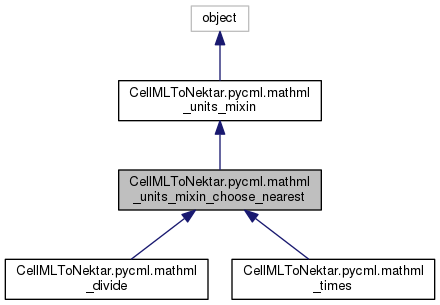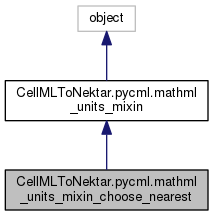|
Nektar++
|
All Classes Namespaces Files Functions Variables Typedefs Enumerations Enumerator Properties Friends Macros Pages
|
Nektar++
|


Private Member Functions | |
| def | _set_in_units |
|
private |
Set the units of the application of this operator. This mixin is used for the <times> and <divide> operators. There are 2 possible strategies here. One is to pick one of the operands and convert it so that the overall units match those required. The other is to pick units from the set of those possible for this application, and convert the result to the desired units. We go with the latter option, picking the units that are least in the sense that they have the least multipicative factor, but where possible that factor is no less than that on the desired units.
Definition at line 3619 of file pycml.py.
References CellMLToNektar.pycml.mathml_units_mixin._set_element_in_units(), CellMLToNektar.utilities.DEBUG(), and CellMLToNektar.pycml.get_multiplicative_factor().
 1.8.8
1.8.8